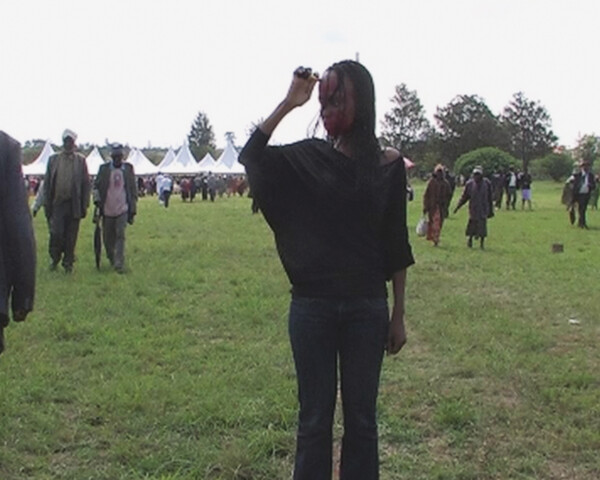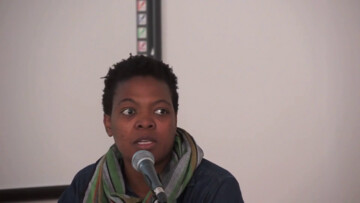Re-entering history is an endeavour that permits us to pursue the past with a blindness that seems virtually impossible to achieve, it is a pursuit of the unknowing grammar of engaging phantoms or ghosts. Revisiting history in a search for meaning in the present is a pursuit of something that can’t even see itself in the mirror, of answers that have no questions, at least not yet. One certainly does not want to tackle a ghost head on. What is required is an apparatus that allows us a kind of blindness through which may surface a newly considered economy of commemorating, one that is stripped of accountability, of ideas of nation building and one open to moments of surprise, moments that are neither depressive nor awkwardly hopeful.
Historical legacies and their relevance and impact on contemporary art take the battle scene as a metaphorical site in which the main concern is not winning or seeing others suffer, but rather an observation of the everyday practices that have been characterised by political legacies that have shaped the pile of history’s debris. History acts as a phantom limb; a → pathological illusion in which pain exists even in an absence and because of absence – it ceases to hurt but remains in one’s memory. Often, a commemoration is its prosthesis. As South Africa commemorates two decades of democracy one wonders if art historian Ashraf Jamal’s cynicism, as expressed written in response to “a decade of democracy” in 2004, still holds its mocking tone the same way it did ten years ago. “How, then, to commemorate? Where does one begin?” asked Jamal and went on to answer, “The fact is one doesn’t, for South Africa, irrespective of the history it has constructed for itself, remains a society that lives with the terrible unease of never having begun. It may suppress this unease; indeed, it would seem that South Africa’s finest talent is its ability to draw a rabbit out of a hat and call it history”.

Donna Kukama, Not Yet (and No One Knows Why), video of a performance, 4´ 56˝, 2009. Courtesy of the artist and Blank Projects, Cape Town and M HKA.
Is history then a phantom; is it all in our heads? If, hypothetically, Nelson Mandela never died but instead became younger each year, would his life be remembered or his death be forgotten? … “If the past were to be postponed into the future, would this moment be a memory?” (Donna Kukama)[1] … The “born frees”, a term used in South Africa to refer to those born after 1994, turned 20 alongside a democratic South Africa post-Mandela, and voted for the first time on 7 May 2014. Their vote was not driven by pain, but one wonders if they experience phantom pains and if they are recognised as such.



